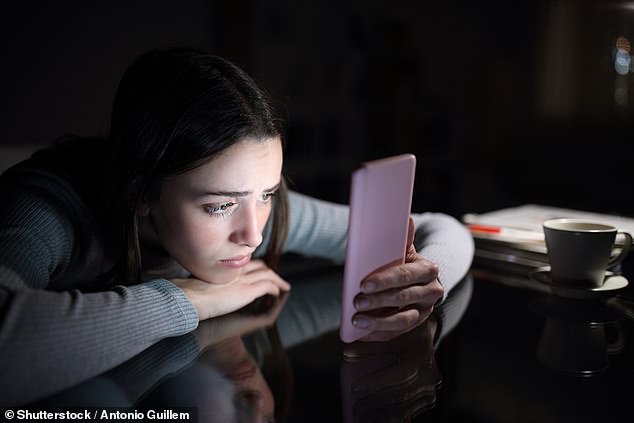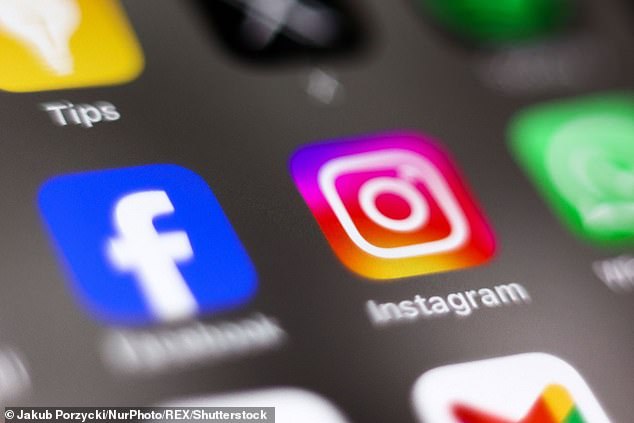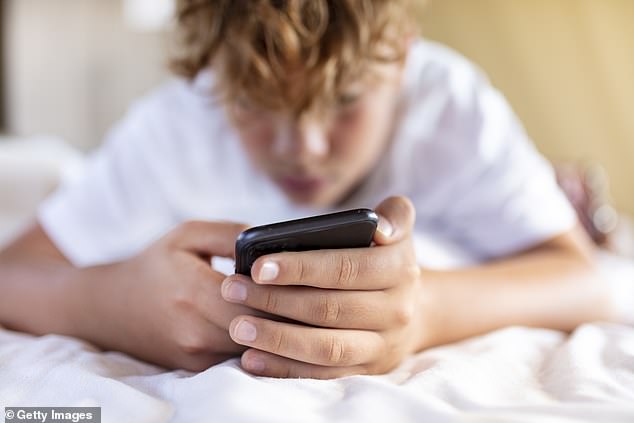Children could be restricted from using social media after 10pm amid concerns that young people’s mental health is being impacted by ‘addictive’ platforms.
Digital Secretary Peter Kyle is weighing up proposals to introduce a curfew that would be the online equivalent of a TV watershed for under-16s.
Experts have long cited social media as a factor that can disrupt young people’s sleep, relationships and socialisation skills.
He told The Telegraph: ‘It is clear that some of the addictive nature of some of the products is causing anxiety and frustration to young people themselves.
‘I believe there is evidence that young people feel angry with themselves about some of the time that slips through their fingers when they start doom-scrolling.
‘I [want to] harness the best aspects of online life and do a damned sight better at mitigating the downsides.’
Mr Kyle added that he had been watching with interest TikTok’s recent introduction of various tools to limit screen time.
These include a 10pm curfew for under-16s, which features the device screen being taken over and calming music played, although the tool can be dismissed to continue using the app.



Another tool, Time Away, allows parents to set specific times that TikTok is available on their teen’s devices. Children can request extra time to remain on the app, but their parents must approve it.
Mr Kyle said he wanted to see evidence of how these tools are helping young people before implementing anything, but said he was especially interested in anything that will ’empower parents’ to control how long their children are spending on social media platforms.
He added that he was now looking at the ‘next steps’ after the final version of the new Children’s Codes, which are part of the Online Safety Act, were published by regulator Ofcom last week.
The new guidelines require tech firms to carry out stringent age checks and ensure their algorithms do not direct harmful content to children.
Describing the rules as a ‘sea change’, Mr Kyle said children’s experience of social media would begin to ‘look and feel different’.
The proposals come just months after new data showed half of British teenagers fear they have become addicted to social media.
Data from the Millennium Cohort study, published last January, revealed 48 per cent of 16 to 18-year-olds felt they had lost control over how much time they spent online.
Girls suffered more than boys, the study found. It comes amid mounting calls for companies including Meta to be held to account over the impact of excessive social media use on the mental health of users.

Andy Burrows, adviser to the Molly Rose Foundation, set up in memory of 14-year-old Molly Russell who took her own life after viewing suicide-related content online, said: ‘Social media platforms have single-mindedly designed their products to maximise how long teenagers spend online, with algorithms pushing endless amounts of harmful content in their direction.
‘Tech companies have consistently opted to prioritise profit over safety and wellbeing.’ He added it was ‘vital tech companies are held to account’.
Dr Amy Orben’s team at the University of Cambridge examined data from the study which tracks the lives of 19,000 Britons born in 2000-2002.
When those in the cohort were aged between 16 and 18, they were asked about their social media use.
The survey revealed 48 per cent of the 7,000 respondents agreed or strongly agreed with the statement: ‘I think I am addicted to social media.’
Girls were most affected with 57 per cent agreeing, compared with 37 per cent of boys, according to the data reported by the Guardian.
Baroness Kidron, a leading voice on children’s rights in the digital world, said platforms were deliberately designed to be ‘compulsive’.
‘It’s not a bug, it’s a feature. The tech sector employs behavioural psychologists who game social media, games, shopping, even news, to ensure it is easy to access and hard to put down.
‘The companies should be held responsible for the outcome of their products.’
She added: ‘Some of what kids are doing online is perfectly harmless, but all the experiences they are missing while they are doom scrolling impact on their development, wellbeing and in some cases ruin childhood itself.’
This post was originally published on this site be sure to check out more of their content







